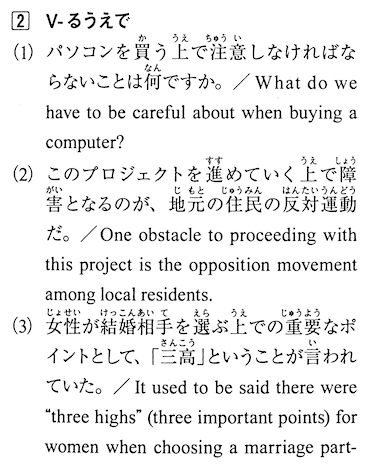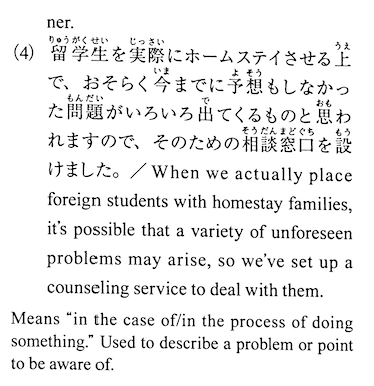I did not see any N3 grammar point for ば~のに, if only.
https://jlptsensei.com/learn-japanese-grammar/ば~のに-ba-noni-meaning/
I didn’t find any N3 point for ふと, suddenly, unexpectedly.
https://jlptsensei.com/learn-japanese-grammar/ふと-futo-meaning/
I didn’t find the N3 いちどに grammar point.
https://jlptsensei.com/learn-japanese-grammar/一度に-ichido-ni-meaning/
This is one is here. It’s easy to miss because it’s cataloged as ったら・といったら and not the full phrase.
Ahhhh thanks! Would make sense to catalogue it as the full phrase; how is one supposed to find it otherwise?
Yeah, I was thinking the same thing. I’m not sure why it’s currently indexed that way.
I didn’t find だけ with the N3 “as much as” meaning.
https://jlptsensei.com/learn-japanese-grammar/だけ-dake-meaning-as-much-as/
We are working on making our search function far more effective in the near future. In this thread, over 70% of the grammar points that people mentioned not being here are actually already on the website. This is not the fault of the user at all, but the fault of the robustness of our search system. For N4 and N5 at least, we will soon implement search parameters that will alleviate this, for the other levels, it may not be as quick, but we absolutely intend to do it as soon as possible.
I think it’s a question of ‘do we need to make search better or do we need to split up some of our entries?’
I would much rather have separate entries for each grammar point, because that means more practice sentences for the SRS. There have been moments in the past where different usages of a similar looking grammar point have been lumped together in one entry (for example) and that means that you only get half the practice with each of the usages. It kinds of breaks the way SRS is supposed to work (in my opinion).
〜る上で (as opposed to the 〜たうえで you already have).


Not sure if this counts, but なら at the beginning of a sentence means “then”. I don’t think that specific usage is on here.
The sentence I ran into was “…そう。なら、本気で殺してあげる。” which means “I see. Then I’ll really kill you.”
I can’t find this particular instance on Bunpro.
かと言うと - you would think that ~ but (that is not right) via DIJG page 114.
Example: 日本人はみんな寿司が好きかと言うと、そうではない。
I came across this in a light novel I’m trying to read but couldn’t find it in Bunpro, although I found it in my Dictionary of Intermediate Japanese Grammar:
とする(1) and とする(2)
Does Bunpro have this and I just didn’t search correctly?
まして/ましてや
前もって
not sure if they might be discussed during other grammar points, but couldnt find them via search
- となると
- いっさい … ない
且つ
てまで


![[Verb Stem] +っこ+する Grammar Rule | LTLN 8](https://img.youtube.com/vi/Lv42o-A55y0/hqdefault.jpg)